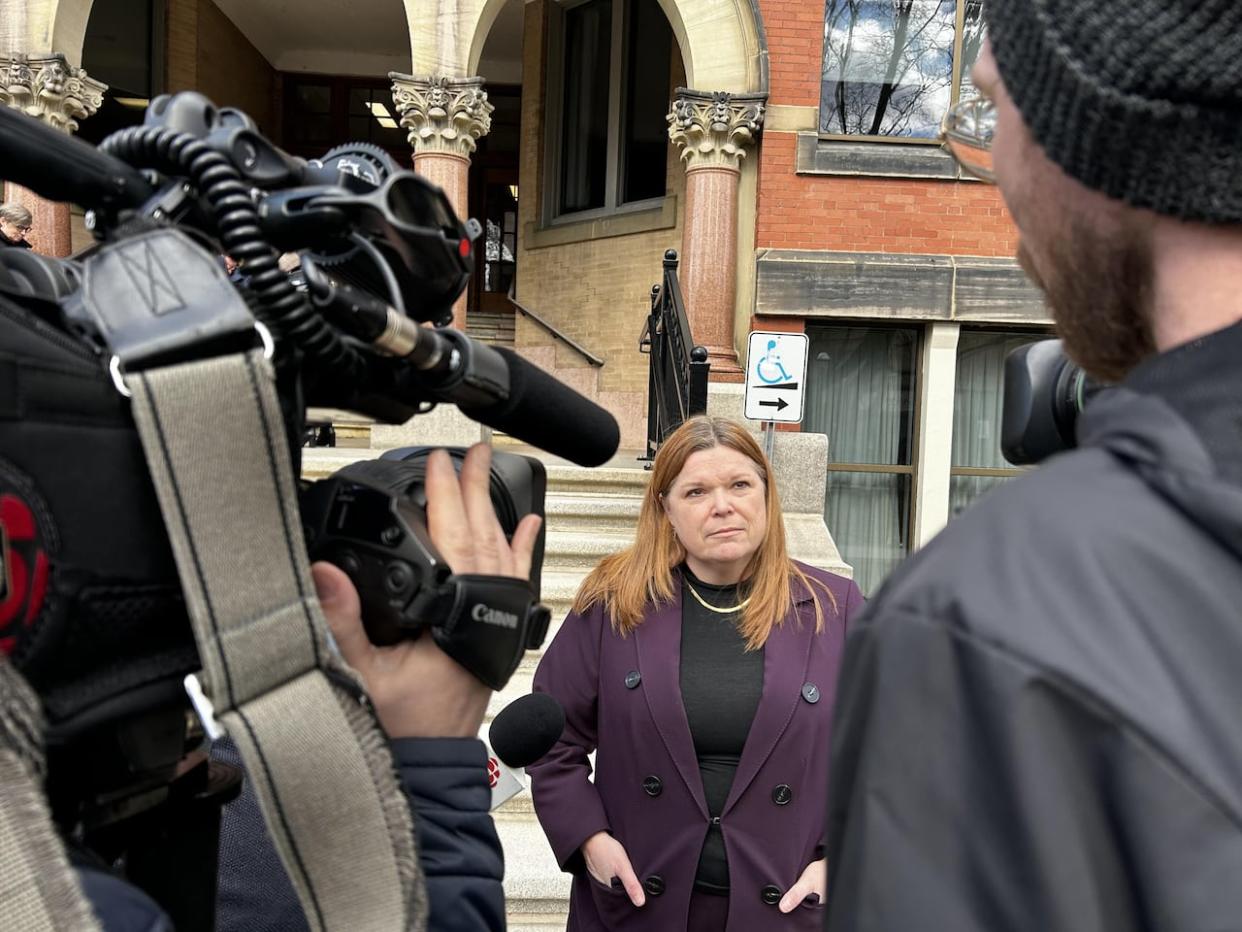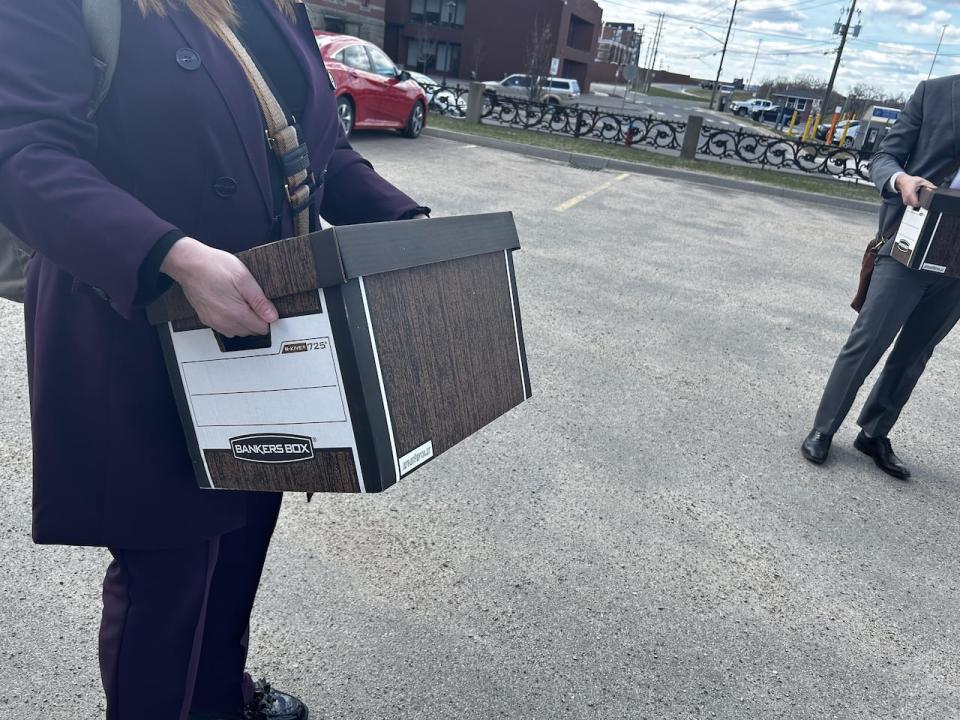Gender-identity policy lawsuit contends with missing documents, scheduling concerns

Seven months after the Canadian Civil Liberties Association sued New Brunswick over its gender identity policy, the province finally handed over the documents required to start the court process in earnest.
That delay, chronic scheduling concerns in the province's courts and an unusual number of organizations asking to intervene in the case, mean the outcome of the lawsuit is likely far in the future.
Last year, Education Minister Bill Hogan changed education Policy 713, adding a requirement for parental consent before school staff can use a child's chosen name and pronoun. The rule applies to students under 16 and to all uses of students' pronouns, whether verbal or official. The previous policy only required parental consent for changes to official records, such as report cards.
The civil liberties association sued the province in September, claiming the policy is illegal and unconstitutional. The association says this policy takes away students' "autonomy over decisions of fundamental personal importance." It alleges the policy is against the Education Act, the New Brunswick Human Rights Act and unreasonably limits a child's right to self expression and safety.

Lawyers handed over two boxes of documents Thursday, containing the record of everything Minister of Education Bill Hogan relied on when deciding how to change Policy 713 last year. (Hadeel Ibrahim/CBC)
But before lawyers can argue these issues, the province has to hand over everything Hogan relied on when creating the new policy. The two boxes of documents exchanged hands Thursday afternoon in Fredericton, but not before their months-long absence caused concern in court.
Justice Richard Petrie heard three of the nine intervener applications filed by different advocacy organizations and 2SLGBTQ+ service providers on Thursday.
The issue of the missing records was often referred to by the judge, the association's lawyer and the interveners.
Petrie said it's difficult to decide which interveners actually have something to add and which don't, when he doesn't know what evidence is coming from the province or what the civil liberties association has in reply.
The province did not say why the document release was delayed.
Sheree Conlon, the lawyer representing the civil liberties association, said in an interview Thursday that the long wait for documents is not typical in her experience. She said everyone has to see those documents first, before deciding what kinds of arguments and evidence they need to present.
"It informs the backdrop for why the government made the decision that it did," she said. "And that informs the response of all, not just the [Canadian Civil Liberties Association], but the other interveners who want to lead evidence as well."
Conlon said the association will need two weeks to review the documents and decide whether it believes the record is fully complete or if it needs to ask for more information. Once that issue is settled, lawyers would be closer to arguing whether Hogan made the correct decision by creating the controversial policy.
The judge heard from the lawyer representing local front-line 2SLGBTQ+ organizations. Ontario-based Egale Canada and local advocacy groups Alter Acadie, Chroma N.B. and Imprint Youth want to be added to the case to represent the people directly affected by the policy.
The court also heard from a lawyer representing two advocacy organizations he described as "peer support groups" for parents who believe their children's transition has made their mental health worse. Our Duty Canada and the Gender Dysphoria Alliance provide a perspective of parents who believe not requiring consent is harmful, the lawyer said.
A lawyer representing the Wabanaki Two Spirit Alliance and Equality N.B. made arguments about how the policy affects Indigenous people specifically and how the "parental rights" movement is tied to the religious right in the United States.
Petrie is scheduled to hear arguments from the three unions representing teachers, school psychologists and student support workers on Monday. He said he will be reserving his decision about whether to allow any of these groups to intervene until a later date.
At the end of the hearing, he emphasized the challenge New Brunswick courts have been experiencing, saying he and the administrative staff will do their best to schedule other hearings as quickly as possible.


